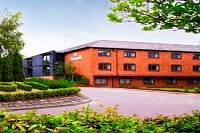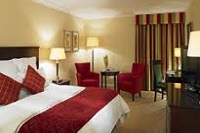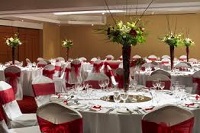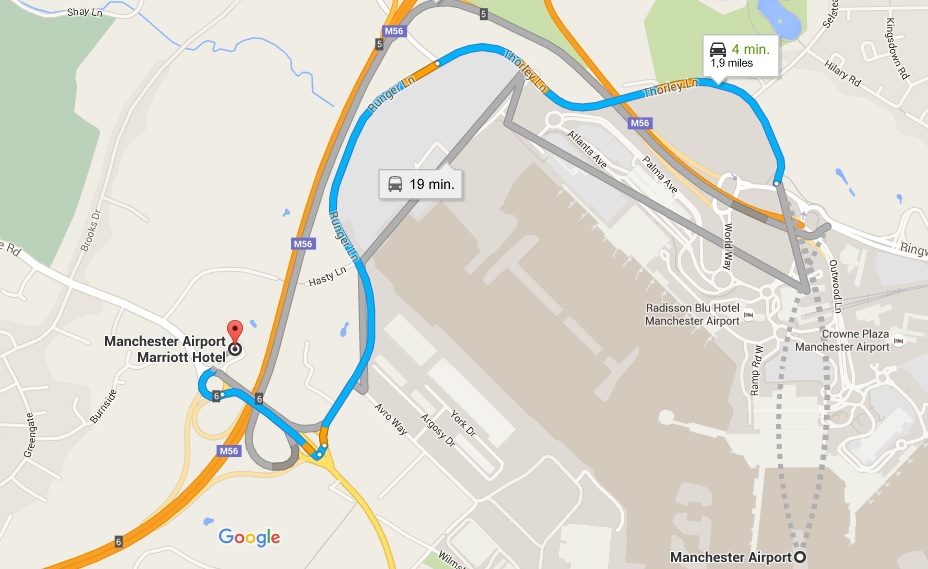Venue & Hospitality
Manchester Airport Marriott Hotel
Hale RD, Hale Barns
Manchester, WA158XW
United Kingdom
Ph: +44 161 904 0301
Conference Dates: August 04-05, 2016
Hotel Services & Amenities
- Audio/Visual Equipment Rental.
- Business Center.
- Business Phone Service.
- Complimentary Printing Service.
- Express Mail.
- Fax.
- Meeting Rooms.
- Office Rental.
- Photo Copying Service.
- Secretarial Service.
- Telex.
- Typewriter.
- Video Conference.
- Video Messaging.
- Video Phone.
- ATM.
- Baggage Storage.



Transportation
Driving Directions to
Manchester Airport
- Manchester M90 1QX, United Kingdom
- Departure in northern direction on the Thorley Lnto Bailey Ln (0.8 mile)
- Continue straight onto Runger Ln(0.8 mile)
- Follow the two right lanes for sloping right to left towards Wilmslow Rd / A538 95 vt
- Follow the two right lanes to the right store at theWilmslow Rd / A538(0.2 mile)
- Enter the roundabout 436 vt
Manchester Airport Marriott Hotel
Hale Road, Hale Barns, Manchester WA15 8XW, United Kingdom
Route Map

About City
Manchester is a city, and metropolitan borough of Greater Manchester, in North West England, with a population of 514,417 in 2013. It lies within the United Kingdom's second most populous urban area, with a population of 2.55 million, and third-most populous metropolitan area. Manchester is fringed by the Cheshire Plain to the south, the Pennines to the north and east and an arc of towns with which it forms a continuous conurbation. The local authority is Manchester City Council.
The recorded history of Manchester began with the civilian settlement associated with the Roman fort of Mamucium, a variant of which name is preserved by the city's demonym: residents are still referred to as Mancunians. The Roman fort was established in about 79 AD on a sandstone bluff near the confluence of the rivers Medlock and Irwell. It washistorically a part of Lancashire, although areas of Cheshire south of the River Mersey were incorporated during the 20th century. Throughout the Middle Ages Manchester remained a manorial township but began to expand "at an astonishing rate" around the turn of the 19th century. Manchester's unplanned urbanisation was brought on by a boom in textile manufacture during the Industrial Revolution, and resulted in it becoming the world's first industrialised city.
Manchester achieved city status in 1853, the first new British city for three hundred years. The Manchester Ship Canal, at the time the longest river navigation canal in the world, opened in 1894, creating the Port of Manchester and linking the city to sea, 36 miles (58 km) to the west.
